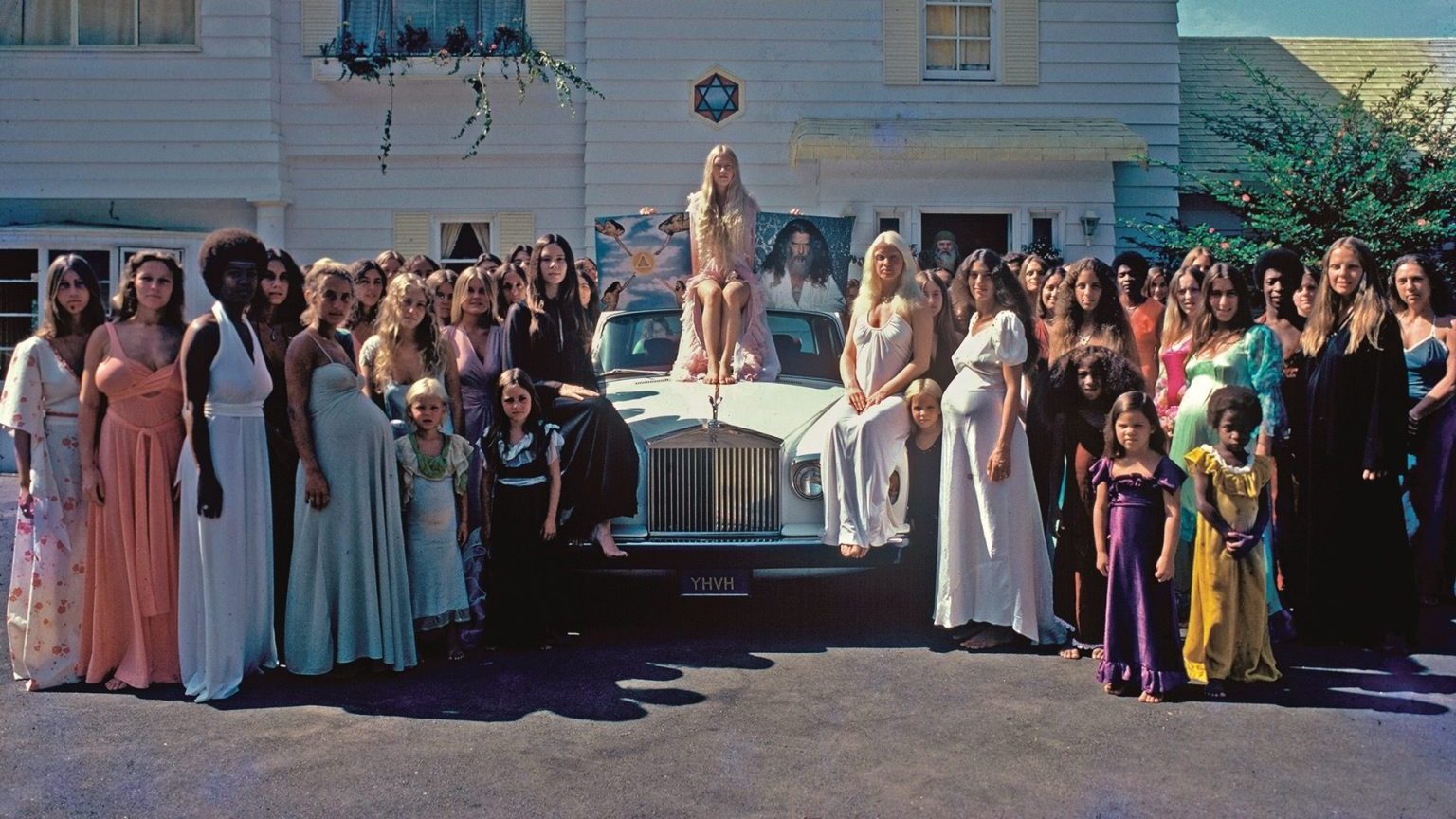Journalist Lenore Skenazy, who advocates for the free-range kids style of parenting, helps you learn to stop over-obsessing about your children.
Question: Are parents different today than they were in previous generations?
Lenore Skenazy: I think they’re really different. I think we are much more preoccupied with our children every second of the day. Are they safe, are they learning, are they getting enough out of this moment, this class, this instant, when we’re supposed to be bonding, and we’re really afraid for them all the time. And it’s not just me thinking this. You know, you get to a certain age and everybody thinks, "Oh, the good ol' days, we stayed out, we had fun, we played outside until the streetlights came on."
But the proof that things really have changed in just about one generation is that if you go get the DVD of Sesame Street Old School, it’s a two-DVD set of the early days of Sesame Street, 1969-1974, and you see all the stuff that we sort of associate with childhood. You see kids on trikes, you see kids playing follow-the-leader and there’s no accredited PhD trained follow-the-leader leader, it’s just kids. You see them playing in a vacant lot and balancing on the beams and climbing through the pipes and stuff, and before you see any of that, what I consider “normal childhood”, my childhood, a warning appears on the screen at the very beginning, this is not a joke. It says, “The following is intended for adult viewing only.” Adult viewing only, they cannot endorse a normal childhood the way they did back in 1970. That is now considered radical, crazy, dangerous, and I have a friend who’s a lawyer there and frankly they debated it and they were afraid of getting sued. What if, God forbid, somebody goes out and plays by himself? They weren’t willing to take that "risk" anymore.
And what I’m interested in is, why is that considered risky, considering the crime rate back in the ‘70s and ‘80s, when most parents today were growing up and playing outside 'til the street lights came on, that crime rate was higher than it is now. So if it wasn’t risky then, or wasn’t crazy-risky, wasn’t nutty parents who didn’t care at all about their kids, sending their kids out and never caring whether they came home or not. If they weren’t terrible, if our parents weren’t terrible, why are we considered terrible if we let our children ride their bike around the neighborhood or walk to school? Really, people will scream at you if you do that with your kids.
Question: Why are parents more afraid than they used to be?
Lenore Skenazy: I think there are four reasons that we’re more afraid, today, than our parents were, or more concerned. The first is that the media has changed. My parents were watching Marcus Welby, the people lived, they didn’t sue. It was a cheerfuller time, in terms of television. You didn’t have Nancy Grace, you didn’t have "CSI," you didn’t have anything as disgusting and revolting and scary as "Law & Order: SVU," because the old "Law & Order" just wasn’t scary enough. The children weren’t small enough and cute enough. So, media changed, and it also became 24-hours and ubiquitous. So you were always seeing, now, a child being snatched off the street. That’s just the number one story, that television has figured to put on, whether it’s a drama or news.
Another thing that’s changed is that we are in a much more litigious society. I’m sure this doesn’t come as a shock to you, but so many things in childhood are considered too dangerous because, God forbid, what if—we’re always what-iffing—and what if a child fell off a teeter totter? Well, let’s just get rid of them, say the park districts, and what if, my kids were going on a fifth grade field trip, the overnight field trip, the one trip they take into nature all year, and the assistant principal had us in the auditorium, and he was explaining the trip, and when he said, “And at the end, there’s this,” everybody was asking him for phone numbers or how to get in touch with them, etc., and he was trying to deflect everybody’s worries. "How close is the hospital?" He said, “Hey, hey, hey, look, on the last day, on the overnight stay, we make a big bonfire.” And everybody was like, "Bonfire?!" You could just see them speed-dialing their lawyers and he said, “Wait, no, let me explain, the bonfire, the children will be 20 feet from the fire and there will be a row of benches,” and I’m assuming these are non-flammable benches, “between them and the fire.”
So that’s childhood today, preparing for any kind of a terrible eventuality, the way lawyers always think back and say, “Why was she so close to the fire?” So we’re always thinking to the courtroom and stopping something, even a bonfire with kids around, roasting marshmallows, before it begins. And I just have to tell you one roasting marshmallow story. Girls in Girl Scouts are not allowed to roast marshmallows unless they have one knee on the ground.
Question: What is a free-range kid?
Lenore Skenazy: A free range kid is a kid that grows up sort of in an old-fashioned way. I mean, I don’t think there’s anything radical about a free range kid. A free range kid is somebody, probably like you or me, who gets walked to school a couple times and then learns the route, if there’s a safe route that you can go to school, and gradually assumes responsibility for that. When they get a little older, maybe they have a paper route, maybe they become a babysitter. A free range kid can go to the park and on the way, knock at somebody else’s door and say, “Hey, come on, let’s go out and play.” All this stuff that sounds so unusual now.
In May, I declared it "Take Our Children to the Park and Leave Them There Day," and that was considered so insane that the media was jumping up and down, saying, “It’s a pedophile parade!” They were crazed with fear, and all I was suggesting s that we let our kids of ages 7, 8 and up, go and spend an hour, half an hour, they got me down to 10 minutes, 10 minutes at the park, with each other, trying to come up with a game, figure out four square, play handball, do hopscotch, without me telling you what to do, because that turns out to be a very important thing. Free range kids end up having to entertain themselves, something that it is very hard for me to get my own kids to do, and when they do, I am so grateful when they’ve plied themselves away from the screen, and they have to figure out, “OK, we’re gonna play foursquare this way.”
My son’s happiest day was when he came home from school and they had invented a new game, which was seven-square. He thought that was like discovering mercury or something, but they had come up with something on their own, something you don’t do if you are in travel soccer league, something you don’t do at your Mandarin lessons, something you don’t do, even when your mother is taking you to Gymboree. You don’t figure out the clap, you’re told how to clap.
Free range kids start to figure out things on their own, and this turns out to be extremely valuable. I hate to say, “You must have a good childhood because it is good for you,” but it is. It is, if you have to come up with a game with your friend, that’s creativity, right? You have to say, "Okay, we’re gonna run to the sewer, no, we’re gonna run to the tree, no, sewer, tree, sewer, tree, tree sewer." Whatever you decide, how about the thing in the middle, we’re gonna step on the cat. You come up with a compromise, okay? You have communicated and then the hot word right now in the child development circles is something called self-regulation. Self-regulation is what we call maturity. It’s the ability to not jump in when somebody else is talking, or not demand that everybody do it your way. It’s a give and take. And it turns out that the best way to develop self-regulation, here’s the best phrase for developing self-regulation. It’s called: “It’s not your turn!” It’s not your turn, is this triumphant phrase of childhood that lifts the child out of demanding, “It is, too,” and slinks them back to behind the start line, and waiting their turn. And it’s not fun, and everybody would like it to be their turn all the time, but you internalize that lesson when you’re with your friends, and you don’t internalize that lesson when your Mom says, “Ah, go ahead, we’ll do it five strikes and you’re out,” or when the coach says, “Okay, one more time,” or, “That was just practice, keep going.” When you’re with an adult, it’s a very different thing than when you’re with your peers and you’re working it out together. And free range kids work things out together. That’s why I want them to get back outside, playing with each other, without us hovering all the time.
Question: What can parents do to be less overbearing?
Lenore Skenazy: You can leave your cell phone at home and so you sort of wean yourself off of the idea that you must be constantly available to your child and vice versa, your child must be constantly reachable by you. Another tip I give in my book is simply, one of those hours that you’re gonna watch "CSI" with a body dredged out of the swamp, or "Law & Order" with the girl dragged off the street, turn off the TV and spend that hour outside. You know, walking around your neighborhood, preferable with your kid, to remind yourself that you live in the neighborhood, that’s where you live. You don’t live in "Law & Order"-ville and "CSI"-ville. And in fact, I started a correspondence with a guy who started writing on my Web site, who lives in a neighborhood, a nice, quiet Brooklyn neighborhood, where they’re always filming "Law & Order" and it’s so ironic because he loves his neighborhood, 'cause it’s nice and quiet and safe, but if you ever saw it on "Law & Order," you’d think that there’s a murder every week. So remind yourself about the real world, and also it’s safer. The more people you meet, the more neighbors you know, the more familiar you and your kid are to the neighborhood, everybody’s safer and connected. A lot of the "Free Range" message is about creating the community we think was lost. Well, it’s lost if you don’t go out there, but if you do go out there, you can connect again.
And that’s why one of the sort of offbeat ideas I also give, tip number three is, when you’re someplace with a bunch of parents, each of them hovering over their own child, the school gate hasn’t opened yet or soccer practice is about to start in maybe five minutes, or you’re at the bus stop, because a lot of parents now drive their children to the bus stop and wait for the bus to come because they’re so afraid of what might happen in that five minutes. When you’re with a lot of parents, turn to them and say, “You know what? I’ll watch them. I’ll watch your kids.” It’s this mind-blowing idea, because what you’re saying is two things at once. One is that we don’t all need to be here. We don’t think that wild banshees are coming, there’s not a twister in the distance that we’re all gonna have to save our kids from. I think one adult can watch over all these children and they’ll be okay. And what you’re also saying is, “I don’t think it’s a horrible burden for me to watch your kids.”
So many times, one of the things that we’re worried about is I don’t want to impose on anyone. If I’m at the park, I don’t want to ask another lady to watch my kids while I go to the car and get the sippy cups, because that’s too much. It’s good to ask favors of each other and to offer favors. So you offer the favor, and then if no parent takes you up on it, you say, “OK, well, listen, Mary is staying here and I’m going off to work.” And then you say, “I know she’ll be safe with you guys.” So either way, you are almost aggressively saying, "I trust you, I trust this neighborhood. I trust my child not to run into the street." And when you start reminding people that this is what people used to do, I think they used to watch out for each other, I think in a lot of other countries, people still do this. Maybe we can re-knit the kind of community that we all long to live in, and that we all feel is safer for our kids.
Recorded August 17, 2010
Interviewed by Andrew Dermont






